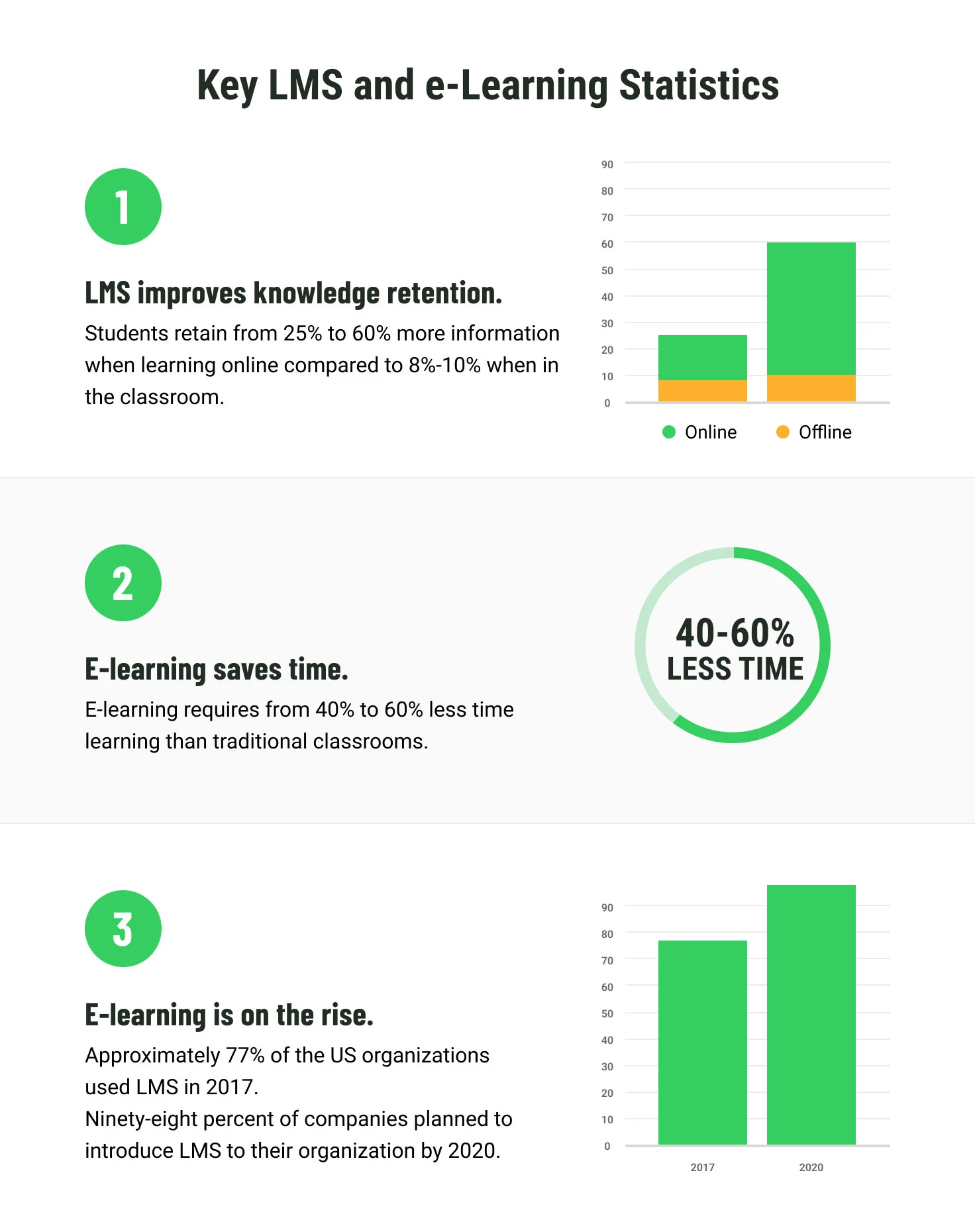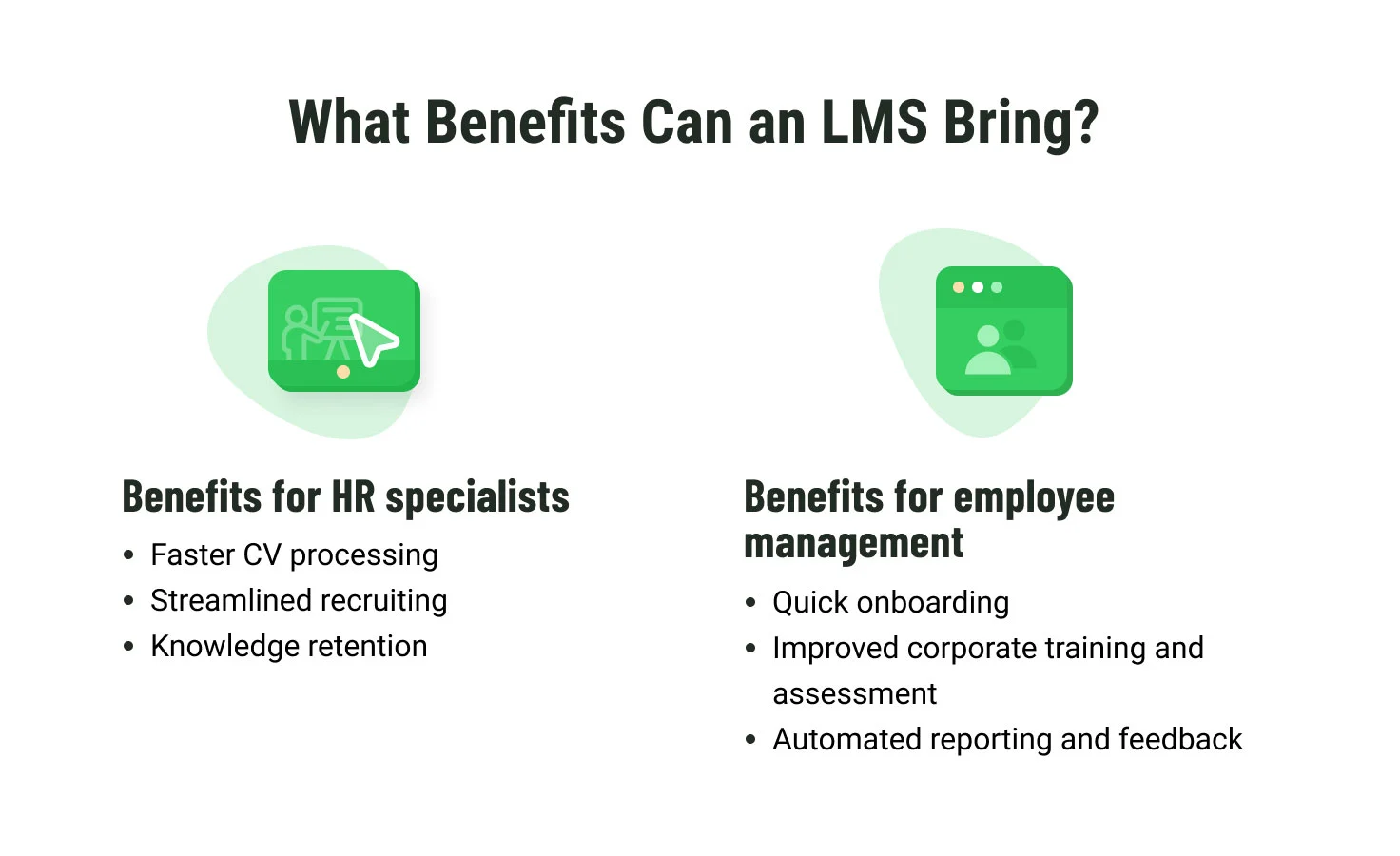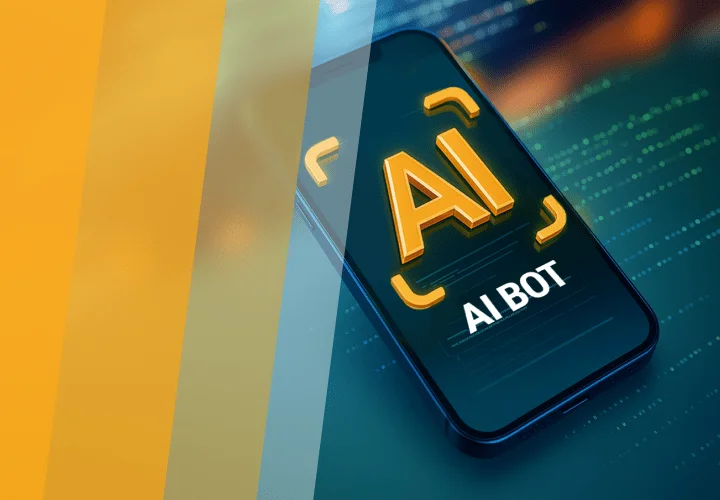By Introducing e-Learning to the HR Department, You Receive Mutual Benefits. What Are They?
Table of contents
Online learning has benefited almost every sector, and Human Resources is not an exception.
E-learning might sound like one more task to add to a never-ending to-do list for busy HR teams. Employees of the HR department perform many tasks every day: they create vacancies, look through hundreds of resumes, interview candidates, help newcomers adapt, and conduct training for the team. However, online training can not only simplify the work of the HR department but also grow strong professionals who can clearly perform business tasks.
Moreover, this is the HR department that is responsible for the employee’s well-being and for bridging the communication between the organization and the employees. The effective work of the HR department in one way or another affects the efficiency of other departments. To ensure flexible and high-quality performance in all areas, you should provide HR specialists with all the resources for continuous learning.
You can do it with e-Learning. Today, online learning tools, such as LMS are being implemented by both large and small companies. Indeed, in 2017, approximately 77% of corporations used LMSs, and 98% planned to introduce them to their organization by 2020. Let's find out what is behind these numbers, how e-Learning can help increase the effectiveness of the HR department, and get an expert opinion on the LMS potential.

How Can HR Specialists Leverage LMS?
Knowledge retention
Although this is the HR department that is most often responsible for organizing the education of company employees, HR specialists themselves often have to deal with new information: whether it is employment laws updates or new work demands in the organization. To quickly obtain a particular amount of knowledge and skills, a company should first ensure consistent learning, high engagement, and the opportunity to learn anytime, anywhere.
On average, students can retain 25% to 60% more information when learning online compared to 8% to 10% when in the classroom. Moreover, e-learning requires 40% to 60% less time learning than traditional classrooms. In this case, learning with the help of an LMS contributes to better mastery of the material and helps to significantly save time, which allows HR employees to switch to other more critical tasks.
Faster CV processing
HR specialists, recruiters in particular, often have to process and review a large number of resumes to choose the right candidate. Online testing with an LMS integrated into an HR solution can facilitate this process. How? Recruiters can offer all the candidates to complete a test and answer particular questions. Candidates with the best results receive a job interview invitation.
Streamlining recruiting
Hiring real talents can pose a specific challenge to recruiters. With remote work becoming a popular option today instead of the traditional office space, companies should consider implementing e-learning software for streamlining the remote hiring process.
Upgrade your e-learning system with online courses about various steps of the hiring process and lessons on how to present your company successfully. This training can also help recruiters identify what questions to ask, what to look for, and how to make a great impression as a future employer.
How Can the HR Department Use LMS For Employee Management?
Quick onboarding
Onboarding often brings some troubles to HR workers. But still, the importance of onboarding cannot be overstated. According to ClickBoarding, employees engaged in a structured onboarding program are 69% more likely to stay in a company for three years.
So, why not make onboarding more comprehensive and interactive? Add everything newcomers should know in your LMS: company policies, values, legal requirements, growth opportunities, etc. Information should be presented in portions and separated by small interactive tests. LMS for onboarding employees doesn't only allow HR specialists to automate workflows and build an efficient onboarding experience, but it's also an excellent tool for introducing your corporate learning culture to newcomers, and the system employees will use for workplace learning.
Corporate training and assessment
LMS is a perfect tool for companies of all sizes to improve and automate the HR department's work, especially regarding employee training and development. You need first to upload your company’s structure, develop a training strategy, fill in job profiles, and set up a learning path for a particular profile. Then, through integration with internal software, load employees' accounts and assign courses to them. And the final step is monitoring the training process, reporting, analyzing the quantity and quality of completed courses, and making adjustments. 一 Volha Bukhal, Training & Development Team Lead at LeverX.
In addition, an LMS can significantly contribute to the assessment process. A good LMS is like a virtual institution, including various learning programs, training materials, presentations, video lessons, and lectures.
Employees enter LMS, read articles, watch videos, and solve tests. The system automates the most tedious and monotonous work: it reminds students of the deadline, checks tests, collects statistics on their performance, and compiles lists of the best. This helps HR specialists get rid of routine tasks and improves the educational experience of other employees, especially if the system has a mobile solution.
Reporting and feedback
With an LMS that provides tracking and reporting, HR workers can receive valuable insights about all business processes. When the HR department has the most current data on an employee's learning performance, interest, motivation, and the effectiveness of training programs, they may identify inefficiencies and improve the employee learning experience. Collecting anonymous feedback through the system will give you more accurate data, which you can use to make the right decisions regarding employee management.

In a Nutshell
Technology does not stand still, the market for training and talent management dictates the conditions and trends, and LMS should also meet new requirements. To have an LMS that would always be in high demand, create exciting and intuitive interfaces, simplify the user experience, implement AI and chatbots, add new training modules to the solution, and provide opportunities to develop and maintain communication on various topics (discussions boards, microblogs, chats without leaving the service). 一 Volha Bukhal, Training & Development Team Lead at LeverX
Did you know that every dollar invested in online training will result in $30 in productivity, according to the IBM study? This profit can be explained by the employees' acquired ability to resume work faster and apply their skills immediately. Indeed, investing in an effective e-learning platform today means getting the best experts on the market tomorrow.
Emerline can transform your LMS idea into a successful product. Our experienced development team is ready to create a custom solution or integrate an out-of-box into your corporate system. Book a free consultation right now!
Published on Jun 24, 2022





